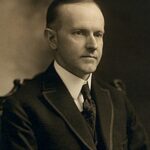The Kellogg-Briand Pact Decision
In 1928, President Calvin Coolidge made a landmark decision supporting the Kellogg-Briand Pact. This multilateral treaty officially outlawed war as an instrument of national policy. Secretary of State Frank Kellogg negotiated alongside French Foreign Minister Aristide Briand. The agreement emerged from post-World War I peace movements demanding international cooperation.
Historic International Agreement
The Kellogg-Briand Pact attracted sixty-two nations as signatories by 1929. 📊 This represented nearly all major world powers at the time. The treaty established important precedents in international law regarding warfare limitations. Coolidge viewed the agreement as advancing American diplomatic leadership without entangling alliances.
Constitutional and Legal Framework
The U.S. Senate ratified the Kellogg-Briand Pact by an overwhelming 85-1 vote in January 1929. ⚠️ However, senators added reservations protecting America’s right to self-defense. The treaty avoided binding enforcement mechanisms that might compromise national sovereignty. This approach aligned with Coolidge’s preference for moral leadership over military commitments.
Impact:
Immediate International Consequences
The Kellogg-Briand Pact significantly enhanced America’s global diplomatic prestige in the late 1920s. 🌍 European nations praised U.S. leadership in promoting international peace agreements. The treaty demonstrated America’s commitment to world stability without formal military alliances. Smaller nations gained hope that international law could replace military force.
Long-term Legal and Diplomatic Effects
The Kellogg-Briand Pact established crucial foundations for modern international law principles. Post-World War II tribunals cited the agreement when prosecuting war crimes. The United Nations Charter incorporated similar language outlawing aggressive warfare. 📊 Legal scholars credit the pact with advancing peaceful conflict resolution mechanisms globally.
Historical Assessment and Legacy
While the Kellogg-Briand Pact failed to prevent World War II, historians praise its moral significance. The agreement represented humanity’s first universal rejection of war as policy. Coolidge’s support demonstrated American willingness to lead international peace efforts. 🕊️ The treaty’s principles influenced later peace agreements and international organizations. Modern diplomatic historians view the pact as an important stepping stone toward today’s international legal framework.
